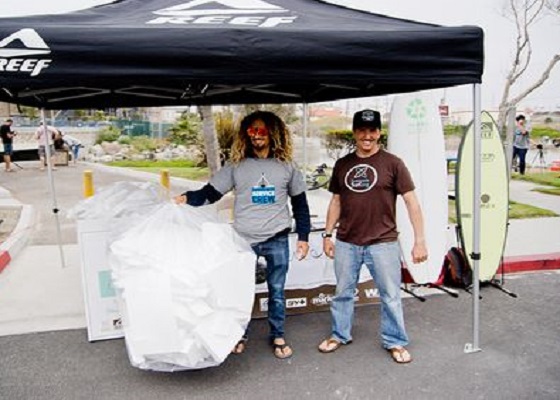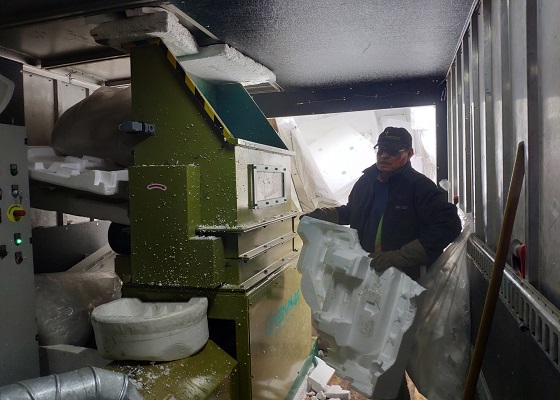Q: Why should we carry out EPS recycling?
A: Because EPS trash is everywhere. The deepest seabed of the earth, the highest mountain has the existence of EPS, in other words, EPS has occupied the earth.
After EPS trash enters the environment, it takes nearly 100 years to be degraded. During this period, it will be decomposed into tiny plastic particles, and it will enter the human body through the food chain. Studies have shown that people are inadvertently swallowing this artificial material.

Q: Can we recycle EPS?
A: Yes and you should! Like EPS fish box waste, EPS cup and plate, EPS insulation board, etc. These are almost 100% recyclable unless it is subject to difficult to remove contamination, such as drug contamination.

Traditional solid waste treatment methods are divided into two types, landfill and combustion. If you have tried to ignite EPS trash, you must have smelled pungent. Yes, EPS burning will produce harmful gases, cause air pollution, and harm the human body. The landfill will also cause persistent solid pollution. It can be said that ESP recycling must be carried out.
Q: How to carry out EPS recycling?
At present, the accumulation of polystyrene foam is almost inevitable, so we must do our own work and recycle as much as possible. Bring your EPS foam to a professional plastic recycler, where we have a convenient EPS densifier recycling machine. The recycling technique is to compress the EPS into a high density ingot. Then sold to the end market, it is the abandoned plastic to regain life.
As far as current EPS recycling technology is concerned, environmental pollution caused by EPS trash is almost inevitable, but this does not prevent us from recycling EPS as much as possible.
Check the local municipal official website to see if EPS trash is allowed to be thrown into the roadside blue recycling bin. If allowed, throw EPS trash in, and then professionals will take over.

If it is not allowed, then one more step is required to check the time and location of EPS recycling activities in your community. During the recycling time, take your EPS trash to the recycling point, where there will be a working EPS densifier. Through recycling technology, the expanded EPS is compressed into high-density EPS ingot, which is then sold to the end market to make EPS trash regain its life.